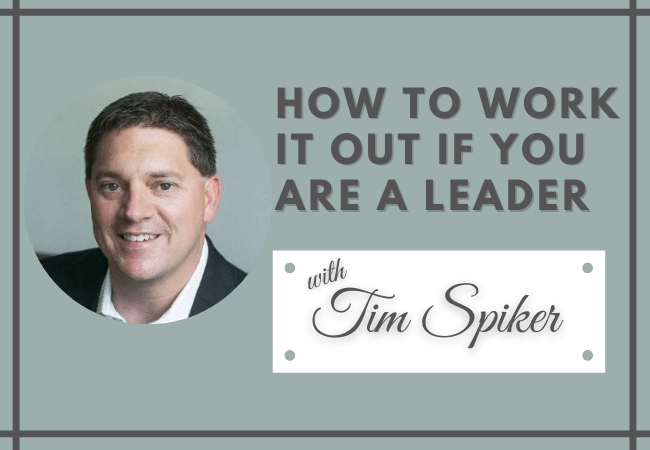
Josh: G’day everyone out there in podcast land. Are you a leader, a lagger or a micromanager? I’ve got someone here to talk to you all about the best ways to work out what it is the voodoo that you do in your business. With Tim Spiker here from The Aperio, and he’s going to go through what it is and how to work that out. So Tim, tell me, how do you work out if you’re a leader, lagger or micromanager? How do you make sure you’re doing the right things? And you’re not being under spoken, over spoken, I think or any of the other ways that you could be?
Tim: I want to share a little research to start this off. But I know when you start to talk about numbers and research for some people, you know, their eyes glaze over and they say, just get me to the punch line. But for other people, it provides some background so that we know that I didn’t show up on the podcast today and made up some ideas that I thought were true, it’s going to be ground. So if you don’t like numbers, hang in here for about, you know, 90 seconds and we’ll get to the punch line.
So here’s the story about how that research happened. I was working for a small boutique consulting firm, and we had people for a week at a time on the west side of Pikes Peak in Colorado in the US to do leadership development with them out of doors. And we gave them a number of assessments. And we had enough assessments and our clients were asking the question, is there any connection between personality style, natural abilities and leadership performance? And because we had all that data, we could run the numbers and look for those statistical connections. And so we did, and I was excited to get the answer. And my colleague, Vanessa Kiley, she crunched all the numbers and I went into her office one night, what did we find? And she said nothing. She found no correlations between personality style, natural ability and leadership effectiveness. But I turn to go out of her office that night, I remember it vividly. And she said, but we did find something. This is a great part of statistical software, it will look where you’re not looking. So we weren’t looking for what we found, but it’s going to look for any correlation it can. And what it found is within our leadership assessment, we had eight different areas that were being measured. And what she found is that just two of those eight areas were driving almost 70% of the variability, and two out of eight, if everything is equal, that should be 25%, and it was almost 70%. And then years later, we had 10 times the data points with 20,000 data points at that point. She ran the data, and that number went up to 77%.
IT doesn’t have to be expensive. If you’re starting a business and need reliable IT support and services, fill out the form to learn more about $1 IT services.
So the issue was, is that there were just two areas that were driving over three-quarters of a leader’s effectiveness. And many years after I left the firm. I was looking at those two areas, and I said what is unique about those two, and this is the punch line. So if you don’t like numbers come on back with this now, here we go. Here’s the punchline. Is that those two areas were about who the leader was as a human being, who they were as a person. The other six that we were measuring were about what a leader does. And that’s when it clicked with me, that three quarters, or 77% if you want to be really technical, but three-quarters of our effectiveness as leaders comes from who we are, not what we do.
So, if we want to be the very best leaders that we are capable of being, doesn’t matter what you’re talking about a leader at work or at home or in the community, we have to work on becoming well 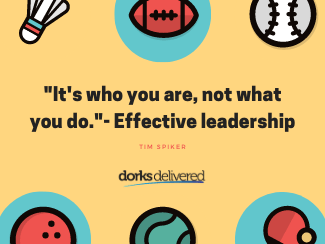
Josh: Okay. So what does it mean to be a leader? How do you find the who?
Tim: So I’ll give you some really specific examples here. So we can make this actionable for everybody. But the two big buckets that were the drivers were a category that we want to call inwardly sound. And another category that we want to call others-focused. So if you think about, I’ll just ask you, you know, Josh, if you think about a boat, if I were to say, hey, we’ve got a really sound vessel here, what are the things that come to mind for you, when you think about a boat, that’s really sound? What kind of characteristics does it have?
Josh: Sound vessel means that it’s has a high level of integrity.
Tim: Yeah, keep going. Yeah, keep going. Let’s brainstorm a few of these. So that’s a great high level of integrity in the vessel. What else?
Josh: Yep. So a high level of integrity. A sound vessel, if you’re talking and that that already has the prefix that we know we’re talking about a boat, is that right?
Tim: That’s right. Yeah. Go with the boat.
Josh: So if you know it’s a boat and you’ve got a sound vessel, I always say that it’s a high level of integrity. Yeah, that’s probably the most of it. Like, besides thinking about them, you know that it’s going to be able to achieve the objectives that you put forward through. So if you own a boat that was not a sound vessel, it might be leaking, it could be having issues across water or whatnot. You’re smiling at me like I’ve given you the answer you want. What’s going on?
If you need assistance with your automation, talk to a dork. Fill out the form below to book a free one-hour consultation.
Tim: Yes, you may have given me the answer I wanted, but in fact, and gave the answer that everybody gives, which is, I can trust this thing. Like this thing is sound, it’s going to get hit by waves, it’s going to get hit by surf, who knows it might even get hit by a fish. But ultimately, this is a well-constructed vessel that can take a beating, and still be stable. And this is what when we talk about being inwardly sound, it’s exactly that.
I was doing an interview a few weeks back. And we were talking about this concept of being inwardly sound. And the person who was interviewing me said, so what you’re telling me the person is not a dumpster fire as a person? Like, you know what, that’s probably a fair description. But the idea of being inwardly sound is that I’m secure in who I am, comfortable in my own skin. I’m not looking to my followers to validate me every single second of every single day because I’m so insecure. You get somebody who’s self-aware, they understand strengths, weaknesses, here’s where I excel. Here’s where I need some work. You got somebody who’s principled you use the word integrity that falls into that category. Is this a principled person who I can trust? You got somebody who’s relatively, you know, they’re an emotionally healthy person. They’re not swinging up and down with every move. I mean, we are living and leading in some very turbulent times right now. So you know, unprecedented is the most common word I think I hear these days. Do you want a leader who is wildly swinging back and forth with all the ups and downs that are going on in the marketplace right now? Or do you want somebody who’s got a steady hand? Of course, we want somebody who’s not emotionally being blown all over the place. And you want somebody who has a sense of purpose. So these are the things we kind of talked about. What does it mean to be an inwardly sound person? And these are the things then that we have to work on. This is the part of our message, the part of the research, frankly, that is a little bit out of the norm.
And, you know, I went to graduate school for business, and we did not talk about this in graduate school. We talked about finance, we talked about marketing, we talked about some organisational behaviour, but we didn’t talk about how sound we needed to be as human beings in order to lead well, in order to provide that stable foundation that others can trust. So, that’s half of the equation on the inwardly sound side, so you want to jump over and talk about the others focus side or do you have a question on inwardly sound?
Josh: That makes sense. I was interested to hear what the Yin to the Yang, maybe or hopefully another cool boat analogy.
IT doesn’t have to be expensive. If you’re starting a business and need reliable IT support and services, fill out the form to learn more about $1 IT services.
Tim: Probably won’t be with the boat this time. But others focused means that when I roll out of bed in the morning, to go and read in the places where I read, that it is not about me. Endeavour is not about my ego, the endeavour is not about my bank account, my next promotion, that I am here to steward something. You know, I love that word, because it means that I don’t own it forever and ever, I’m 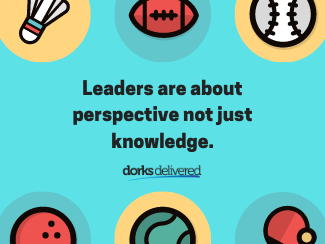
And then the last two bits in there are a Greek word Agape, which means to selflessly care for others, and it’s got an unconditional nature. So it’s not about how you’re behaving, it’s I’m going to treat you with dignity and respect regardless of how you treat me. And then finally, an idea that lots of people are familiar with, but it’s kind of elusive in the human condition, which is humility. And so when you combine those things, now, you’ve got a leader who’s not only inwardly sound, but they’re showing up not for their own gratification, not for their own enrichment, but they’re showing up so that others in the organization and the mission can move forward. And when you bring those two things in combination, that’s 77% of leadership.
Josh: That’s amazing. So I know myself I started off thinking 13 years ago when I start a business, am I doing the right thing and I was the only cog and the only person in the business so it’s easy to lead yourself, you’d think. You have to have a little bit of discipline to not jump onto Netflix or the like that are some of these other distractions, but as the business has grown, you brought up Oscar earlier and definitely being able to listen and hear is very, very important as opposed to just being present, I guess, with being present in the now and hearing exactly what someone’s saying and understanding where they’re coming from to be able to shift what you’re doing.
Do you need help with backup and recovery? Fill out the form to get in touch with a Dork.
And I guess, from what you’ve been saying with being a leader, you did touch on it a little bit earlier, being leaders doesn’t just stop at work, it’s about being a leader at home as well. And I’d imagine being a leader isn’t just about a hierarchal change between yourself and other staff members, as much as it can also be a shift in focus between the family of the business and the way that you speak and deal with clients. Would that be fair to say?
Tim: Oh, yes, it’s 100% true, because when you break leadership down to its most core components, it’s a relationship. It’s a relationship between the leader and those that he or she is leading. And so when you start to think about what creates great relationships, anything that’s going to create healthy relationships is also going to be a huge addition to effective leadership. So going back to those two things, if I am a stable, sane, safe person that you can count on, and then I add into that, that it’s not all about me, that’s great for any relationship. And so whether you’re talking about work or whether you’re talking about at home, I’ll say one of the most gratifying things that we get through experience in the work that we do with leaders is we pause quarterly, we go through a variety of those things that we were talking about, the makeup, you know, what does it mean to be inwardly sound and others focused? We pause quarterly and say, hey, let’s take a step back from the mosaic of the last 90 days. And let’s take a look at what we’ve seen, good and bad. And I get to hear amazing stories.
And I will tell you probably in the neighbourhood of 25% to, you know, probably 35% of the stories that I hear from our clients don’t come from work, they come from home. One of the reasons that are gratifying it’s not just because we’re, you know, helping to make a contribution there. But, you know, families, it’s weird to talk about families in a bottom line, because it’s obviously very different than a business. But there are some bottom-line things that we’re after in our family just happens to not be financed. And when you see greater effectiveness and greater health coming into the family, you see better results, just like in a business. And what our clients begin to understand for their own betterment and for the betterment of the people they’re leading, we come at it through the context of work, because we’re able to show a measurable bottom-line impact in work.
But the truth is if we’re going to work on who we are, we got to work on who we are. Like, this is not the work self that I’m working on, it is the whole of me that I’m working on. So whether that most obvious first bit of progress happens at work or at home, we don’t care, that indicates progress for the person as a whole human being. And that’s going, if it shows up at home, it’s going to begin to show up at work and vice versa. So we love all of that progress because it’s helping people lead more effectively, regardless of how they measure their bottom line.
IT doesn’t have to be expensive. If you’re starting a business and need reliable IT support and services, fill out the form to learn more about $1 IT services.
Josh: How do I know? Or how do we, do you have some tool or ability to measure to understand or is it how well I am leading or other people are leading that are listening at the moment. And the reason I asked this is, I find that people are always talking about being happy on Facebook or probably the ones that need to tell everyone that they’re happy because they obviously don’t feel happy. Does that make sense? So how do you have a sincere self-reflection on if you are doing a good job with leadership or not? How can you find you’re who and make sure that that who is able to be understood, so that you once you understand that that’s something you want to have changed, you have to understand it to be able to change it and then migrate from that spot in your mind and your mindset and your belief systems through to the new spot that you want to be and the goal that you have? How do you work out that transition? Or how do you find out where you start out really?
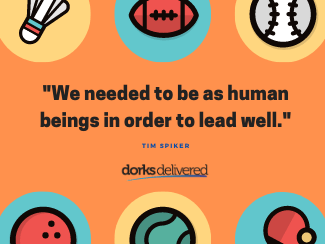
Think about the analogy that we use with our clients with our leadership model is that of a tree. And I want you to think about the biggest healthiest tree you can imagine. I mean, I’m now thinking of some of the trees that I’ve had a chance to see in the Botanical Gardens in Sydney, they’re right next to the opera house. Those are some of the most magnificent, amazing trees that I’ve ever seen in my life.
Josh: Ah, we can be friends!
Tim: Good, good. I’m glad. Josh How long did it take those trees to become that big and that strong? It took a while. [Yeah, absolutely] There was no little matrix blue pill that the tree was given. And magically, you know, it came up. So the disappointing news for many people is that there’s no tip or trick for becoming a well developed who. It takes work and time. And if I could make that different for people, I promise you, I would. Like I would wave the magic wand. But that’s not how humans develop. That’s not how life works. So the first part of it is understanding to really work on who we are, it’s going to take time.
It also takes, and we’ll go back to the first part now, it takes depth. We have to be willing, and this is the scary part. And I’ll just put it out there because there’s a lot of people be like, you know, if I can’t do it quickly and easily then I don’t want to do it. But what have we ever done in life? That was a great value that was done quickly and easily, like almost nothing. On the depth part, we have to be willing to pull up the rocks and look underneath. So we’re not just looking at our outward behaviours, but we’re looking at our motives and we’re looking at our perspectives.
IT is indispensable but it shouldn’t cost hundreds of dollars. Fill out the form to learn more about our budget-friendly on-demand IT solutions.
And we have to be able to, you know, it’s not just a question of how do we come off to other people, but you know, if I’m working to be more others-focused, and part of that is becoming more humble and part of being humble is an eagerness to give acknowledgement and recognition to other people. Then one of the things we want to do is, is take a look at that over the course of, we usually use about 90 days per subject and to say, I’m going to look at myself through the prism of humility, and see, do I get excited about giving acknowledgement to others when I could kind of hug it for myself? If I don’t get it excited about that, look, that doesn’t make you a horrible person. That just means you have space for growth, and we all have space for growth.
So welcome to the human condition. We all have ways in which we can grow. But that pointed focus over a period of time, in this case, I’m suggesting 90 days for each one of these subjects, that’s what we do with our clients, is to really look deeply and I mentioned that you pull up those rocks and say, what really is my motive? What really is my intent? Am I just trying to look good? Or am I trying to be, in this case, for this example, am I trying to be a more humble person, a person who is willing to you know, here’s another thing, look at any 90 days, and ask yourself, how many times have I said, I’m sorry, or I was wrong? You and I both know people that cannot put those words together. You know, they get there. They’re like, you know, can’t say I was wrong. I can’t say I’m sorry. Those are indicators that we have space to work on. So you know, you know one activity I could just keep track of that for 90 days. How many times did I say I’m sorry, how many times again, what we’re analysing is the condition of our hearts. We’re analysing the condition because what happens is people want to bring the whole of themselves on board for people that are on board for them. And so this gets back to the others focused idea.
So let me hit on the last thing here community. Let’s say I want to get healthier. And I’m going to start a workout practice. And I say, hey, Josh, will you be my workout partner, my workout buddy? And you say yes. And the alarm goes off at five in the morning, and we’re supposed to meet at the gym at 5:30. If I know you’re going to be there, my chances of showing up go way up. Way up. Some would suggest as much as five times up.
And this idea because this is hard work, and because it takes time. We need people around us on the journey with us that are willing to tell us the truth about ourselves in a way that won’t break the relationship, and who are also willing to be a little bit vulnerable and share about their journey as well. So imagine that you had a group of three or four people and say, hey, we’re going to work on being more humble over the next 90 days, we really want to become that, we’re going to trade some stories and how we’re working on that. And we’re going to travel in this way together to encourage people because it’s hard. It’s not easy. It takes time. We’re going to see some stuff we’re not proud of, let’s do this together. You find that people have a much greater follow through on the inner development of who they are when they have a community around them. So I would say those are the key three things that we involve with our clients and all the work we do. But people don’t have to work with us in order to apply those three things, you know, you can go do those things on your own. Depth, community and time are essential if we’re going to work on the core of who we are as people.
IT doesn’t have to be expensive. If you’re starting a business and need reliable IT support and services, fill out the form to learn more about $1 IT services.
Josh: What you said, their own community pretty much comes down to accountability, doesn’t it or not?
Tim: Yeah, that’s part of it. There’s also learning element. Yeah, you get to learn from others as well.
Josh: I know. Just only what you’re saying with the gym membership. I was a member of a gym for six years. And weirdly when the card set in my wallet, I didn’t lose any weight. The moment I changed the gym.
Tim: That is strange.

Next week, I want to make sure I’m a better person, you definitely have that community and that feeling that definitely grows. I could totally see five times as a very achievable number because you have that and that’s really cool. Definitely, with being able to build that into your business, and do you have much pushback from different people within the business structure that might be old fogies, dead wood or otherwise, that they’re not really interested in applying and becoming that new person that is interested in being in the back of the warehouse or the number push or whatever they’re doing the Voodoo that they’ve been doing for 30 years, or what do you do with that?
Tim: You know, not nearly as much as I would have thought, honestly. Occasionally, you get somebody that can’t get over the hump of how they’ve thought previously and how they’ve oriented. What I’ve seen many more times, is people who are open to the research. And I think it’s really important to remember that that’s where this comes from. And it’s not only research that I got to be a part of with this group.
A few years ago, Harvard Business Review published a really telling article from a consulting firm called KRW. And what they were measuring was positive character qualities of executives and executive team. They wanted to look at the financial performance. And what they found in that study was nearly again, the five times in a company, I believe was 4.8 times return on assets from the highest-rated executives and executive teams on characteristics. And I’ll find that in just a second from the lowest. And so what they were measuring. This is really interesting in terms of the parallel, they were measuring integrity and responsibility, remember those two together, and they were measuring compassion and forgiveness.
When somebody said somebody is measuring compassion and forgiveness from the executive suite, really, somebody is actually doing that research. I was blown away that it existed. But think about this for just a second. They’re measuring executive and executive teams on those four things, integrity and responsibility, that’s about being inwardly sound. Compassion and forgiveness, that’s about being others focus.
Do you want to learn more about technology for business? Fill out the form below to get a callback.
So the word in the research was a little bit different, but it points in the exact same direction. And so, there are other works. David Byrum, who is a consultant who works out of Sydney with Human Synergistics. They have done longitudinal studies. They have over 2 million data points. They’ve been around for decades, and they’re cut across all cultures, and demographic split you can imagine, they have found this exact same trend in their work. They call it constructive styles. But it’s the same content. And so you look at these various pieces of data. And when you start to look for it, you’re going to begin to see it everywhere. And that is to say, back to your question, do people really push back against that? Once they understand that there’s research behind this, and not somebody saying I had a dream and therefore I woke up one day and decided this is what leadership is really about. We weren’t even looking for it. We were not looking for this. The statistical software found it.
There are other places who have found similar stories. And I’ll just put this as the sealer for it. If you want to go around and ask people who is the best leader you’ve ever followed personally, and they do that thought process and then you ask this question. Why is that person on that list? Why does that person come to mind? If you listen to the answer, the vast, vast majority of what people will say it when they answer why, you’re going to hear them talk about who that person is, as a human being. I have never had somebody answer that question by saying, you can’t believe how great he was at Microsoft Excel. Never. Not in the history of that question. And what’s even more amazing is rarely in the business space do people even talk about profit, they immediately start to talk about the quality of the human being that was the best leader they’ve ever followed. So when people look at the data, and then they start to look at their own history, and they see alignment, I think many of them become open to the idea, then they start to do it, then they really see how it has worked and has been working and it’s working whether they’re aware of it or not. It’s working all the time around them. It’s a question, are you going to go ahead and embrace the fact that gravity exists or you’re going to ignore it? And, of course, we want people to embrace it so they can move the lead forward.
Josh: Cool. So don’t we ask the question around this time of the podcast around what’s your favourite book? But I think you’ve got a bit of an interesting answer to that one that I think I already know what the answer is. Tell me about your book, unless it’s not your favourite.
Tim: Well, hopefully, I’ve got some other favourite books. But, I’ll take you up on the question anyway. So the book is called the only leaders worth following. And what it does is it outlines the research. So that’s the first part, let’s understand what we’re talking about. So it goes into greater depth of the themes that we’ve been talking about. And then it spends the rest of the book diving deeply into these various realities of being inwardly sound and others focus and how they play themselves out to create a more effective leader. And so ultimately, we want to give people not only the data but also the anecdotes. I think we need both.
IT doesn’t have to be expensive. If you’re starting a business and need reliable IT support and services, fill out the form to learn more about $1 IT services.
I think stories help us understand data, data helps us understand stories. I think we need both. But that is the idea of the book, to help people understand the research and then see it in real-life stories and begin to think about what are the things that I need to work on? What are the things that I need to do to become a more effective leader? Now there’s a different readership for the book in addition to that, which kind of the title handset which is, you know, the only leader worth following. And if you’re somebody that says, Look, I don’t even know that I’m interested in leadership as something that I want to do. But I bet you’re interested in choosing the right leader to follow. I bet because leaders have a profound impact on our day to day experience they can make life really, really rewarding and fulfilling, even when the work is hard. They can also suck the life out of us. And that’s not just the work-life, they can suck the whole of life out of us. And so to really help people orient towards how they evaluate the leaders they want to follow, that’s another quality, that’s another way that this book can be put to use. So the only leaders worth following is about unpacking what we’ve been talking about what we call the 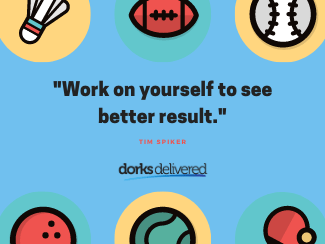
Josh: What we’re going to do is we’re going to make sure to have a link there so that people can check that out on your website. I definitely think that sounds like a very good quality first step towards going down the path of leadership and finding out your who. Who is the leader that you look up to, Tim?
Tim: Oh, my goodness. Well, there are a lot of leaders that I have looked up to over the years, and I’ve been very blessed to, I’ve been very blessed to be around some really exceptional leaders. One of those leaders is my father. My father started a business. And I kind of watched him about, you know, one of the great lessons I learned from my father, fell into that category of humility. I would watch him interact with the top people around him, and then I would watch him interact with the cleaning staff, and it was identical. He didn’t treat them any differently. And I learned, you know, learned about humility from him. I think probably for the rest of my life I’ll be striving to get like halfway on that scale to where my father is. He’s definitely significantly more well developed in that arena than I am.
I played basketball collegiately and I played for a Hall of Fame coach here in the States named Gene Keady. He was another person who was a really sound person, a quality person. And I know perhaps not a lot of folks in Australia will have heard of Gene Keady, but he’s a great person to follow. Now, I’ve got somebody in Australia that well, not technically in Australia, but I’m going to say a name that the business community in Australia is going to be familiar with, who was very, very well known in Australia, and then recently has in the process of leaving his current position that is a bit controversial right now. But I’m going to name out this person because he has been an incredible leader in my life and he is a great example of these two things of being inwardly sound and others focused. And that is Mike Kane, who is in the process of finishing up his post at Boral.
If you need assistance with your automation, talk to a dork. Fill out the form below to book a free one-hour consultation.
Now, you know, I’ve read all the things that are in the Australian papers about Mike, and I know Mike personally, and he’s been a huge influence in my life. And I’ll just say that there is so much more substance than what is reported in the paper. So I’ll just, I mean, perhaps the listeners aren’t shocked to learn that there’s more to what’s being written in a paper whose goal is to sell ads. So I’ll say that. But Mike Kane had an incredible run-up at the start of his time.
I understand that some people watch the stock price have Boral in the last couple of years and they have some questions. And I get that around the strategy side, but as far as somebody who I would personally run through a wall for because he is those two things of been inwardly sound and others focused, Mike Kane is near the top of my list. Even though you’re going to ask me that question. And I realised that there are a variety of opinions about Mike right now flying around in the business community, especially in Sydney. But I will tell you, he is a first-rate leader.
Josh: Different leaders for different reasons. Your father is a big figure, you’ve got Mike Kane there as a business figure as well as then health fitness and recreational stuff. I like that, I didn’t know what you’re going to say. So I was very impressed with that. Because when you said it earlier, it sounds like ooh, who would be my leader, I don’t know
Tim: Well, think about that. That’s worth thinking about.
Josh: I thought dad definitely, Nikola Tesla, not Elon Musk, the car guy. I’m like, no, he helped the world in so many ways with the technologies that he created. And his name wasn’t even really mentioned or heard of for another 80, 90 years. And the money that he had, he died in poverty. He wasn’t lavish with the money that he got, and he didn’t want war. And so you’d go to several countries and give them the same presentation. So he was funded by lots of countries that no one had a different, more unique approach to be able to jump into war.
So I thought Nikola Tesla would definitely be up there for me and that’s as high-level humility. And dad has always been there to teach me very much what you’re saying. It doesn’t matter who they are in business, everyone’s at the same at the end of the day, just blood and bones. And we need to be able to have that knowledge that everyone’s here for the same amount of time. We all live the same way, and they be there and everyone has a story and it doesn’t matter who you’re talking to, you should not talk down. You should make sure you’re always there and present to hear what they’re all about.
Tim: I’ll encourage you with this and maybe some folks who are listening, maybe they’ve done this, they started to do this exercise with us as well, who are the best leaders that you’ve ever followed? And you begin to think about for many people and family members and coaches and teachers at young ages are folks that especially influences earlier in our careers, as you think about who those people are, and you begin to maybe even make a little list of the whys. Why did that person make it on your list? I’ll encourage you to do something that will bless you, the listener, as well as the other person, is calling them up and tell them, write them a note. Tell them that I was asked this question, and you came to mind and here’s why. That kind of stuff in life is priceless. Don’t miss that opportunity. You will never be sorry for letting somebody know that they came to mind, that that person came to mind when they were asked who’s the best leader you’ve ever followed?
IT doesn’t have to be expensive. If you’re starting a business and need reliable IT support and services, fill out the form to learn more about $1 IT services.
Josh: I love that. That’s fantastic. And when I started the podcast many, not nearly two years ago, I thought, who would I like to have on the podcast? And I thought of the people that really changed my mind and changed the way of my thinking. Are you familiar with Bob Berg from the go-giver?
Tim: I’m not. I’m not.
Josh: Bob Berg from The Go-Giver. A fantastic book that I read that goes through and describes how to make sure that you’re giving more than you’re receiving and you’re doing the things the way that business should be done. And it’s not all just about numbers. And the other one was by a guy named Dr Larry Little,
Tim: You did have him on the show?
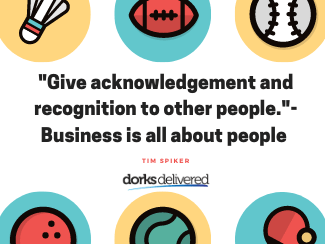
Tim: I’m not even going to try an Aussie accent because it would be awful. It would be awful. So, you had them on and they both came on and you got to do those interviews.
Josh: Both came on both go to do the interviews and very, very blessed to be able to have them on the show and be able to hear one on one what they were all about. And I thought, no way would this Nikola Tesla is going to be harder to say I really like his leadership skills, I have to do some ulterior method.
Tim: That would be a creative interviewing process. If you think about what Dr Little talked about. He talked about servant leadership. And he talked about the question of why are you leading and that leads us right back to that others focused piece that we were talking about earlier. He’s on to onto that part of it that’s so very important. So yeah, I’m not as familiar with Bob Berg, but Dr Little’s interview with you, yeah.
Josh: If there’s anyone out there in podcast land that’s keen to hear a bit more information, Tim has been nice enough to give us a link, theonlyleaders.com. If you jump across there, he’s got a fantastic opportunity for you guys to have himself and his team deep dive in with 20% off for your digital journey through them. Is there anything else you’d like to go through on that offer that I haven’t quite covered off on there? Or do you want to jump into a bit more detail on what they’re looking forward to seeing in that?
Do you want to learn more about technology for business? Fill out the form below to get a callback.
Tim: Yeah, well, you know, in the internet space, you have to be very clear on what the website is, right? So in terms of, you know, you punch it into the search, you’re like, oh, I hope it’s available. I hope it’s available. So what’s really important about what you said is the only leaders, you got to get THE, and so theonlyleaders.com. And you mentioned the 20% off we take leaders on what we call journeys. You can imagine given what we’ve talked about, I keep talking about how hard and difficult and challenging it is.
So we thought, well, let’s just call it what it is. It’s a journey. And it’s challenging. As we take leaders on that, we do have the 20% off there for your listeners. So what they do is they would put in a promo code there. And if you put in the BBF, for the name of your podcast, then that will lock in when we get those digital journeys ready to go. And then also, if you’re not interested in buying anything, we certainly want to be of help regardless of whether somebody’s buying something. So you go to that same website, you can sign up to get a free copy of our study guide that goes along with the book. I suppose now that I say that then I guess it’s only valuable if you buy a copy of the book, but you would also receive other free material that we’re putting out as well. So there’s opportunity to just sign up to be a part of the email list and get some free information, free content from us that we’re producing as well.
Josh: Tim, I’ve loved having you on the show. And is there any other questions you had for me or our listeners, I can only answer for me though.
Tim: You can only answer for you. Well, you know, I might just go with a rhetorical question that parrots back with Dr Little says, and that is if you’re a leader, why are you leading? I mean, and that is, and I mean, to me, that’s a question to think about. What is the purpose of my leadership? Is it just to enrich me? Is it just to make money? Is it you know, what is it? Is it just some of those things? And look, there are people who are successful at making money, successful in their businesses without having kind of a profoundly positive answer to that question. However, what I would offer as we close out and think about that question, for all of us to think about, why am I leading, is that if we’re not able to get to a spot in our life, where the answer to that question has something to do with others, we will never truly know what our full potential was.
And I don’t mean that in like an esoteric out in the universe kind of way, I actually mean that at the bottom line. Even at the bottom line, you’ll never know what your potential was, so long as you’re only in it for yourself, because we don’t get that discretionary effort out of people. if we’re there for ourselves, they’re well aware of it. No matter what words we use, no matter how we try to cover it up. And so why are you leading? Yes, perhaps there’s a fulfilment question that lives within that question. But there’s also hey, what’s possible? What could you and your family or your organisation, what could you see if the answer to that question was, well, part of the reason why I’m leading is for the sake of others, for the sake of what they get out of being under my leadership.
So it’s tough to answer those questions honestly because we want the answers to be really, really nice. And really, really positive. But we have to be honest with ourselves if we’re really going to grow and develop. So I put that question, the final question is perhaps not one to answer today, but to sit with maybe for the next couple of weeks. What if you were to take a piece of paper and just put it somewhere where you saw it repeatedly that said, why am I leading? And you put a little energy into thinking about that and challenge yourself to think about being more inwardly sound and others focused.
Josh: That’s brilliant. I’ll be having a bit of think about it myself. I’ve got a quote wall that I have there and that’ll be getting added to it so that I can make sure to continue thinking about the who and the why. That’s really good. Anyone out there that’s been listening, if you have enjoyed this episode, make sure to jump across to iTunes, leave us some love, give us some feedback, and stay healthy, stay good. And thank you very much for being on the show. Tim.
Tim: Thank you. Really, really great to be here with you.
[module-379]




























